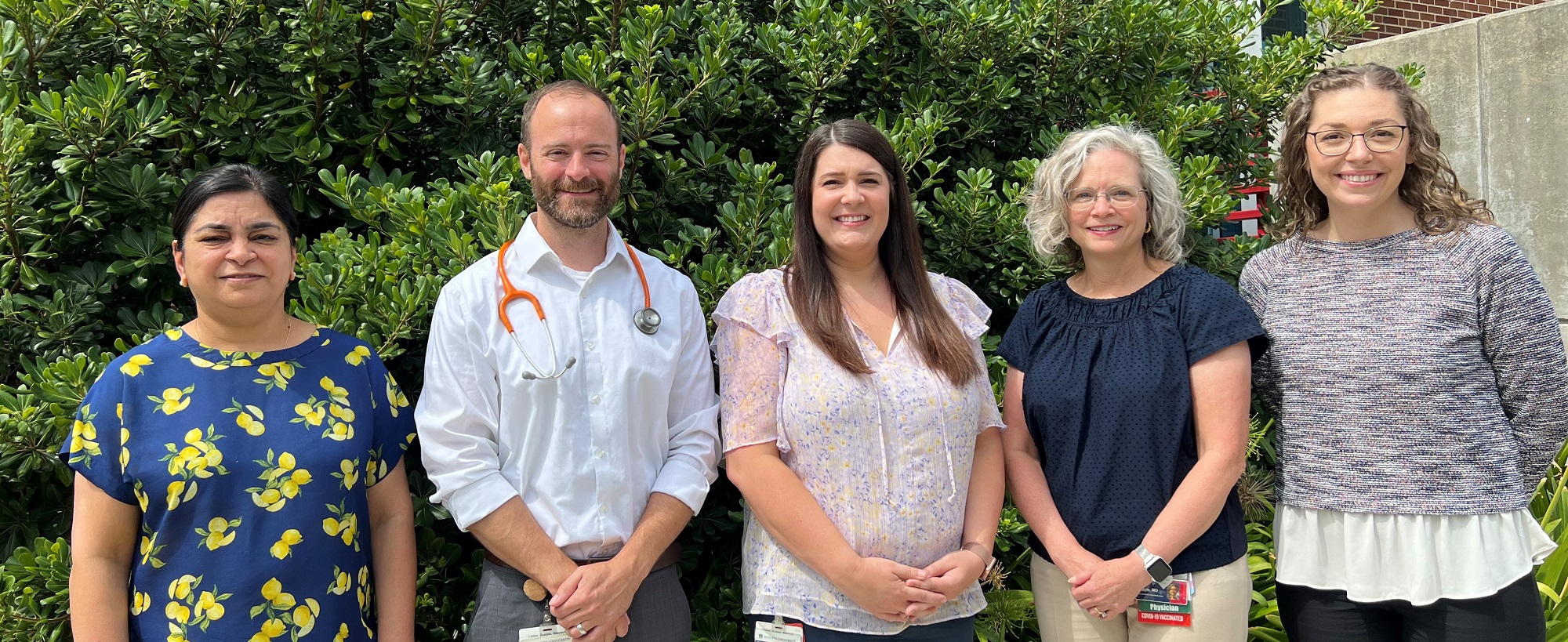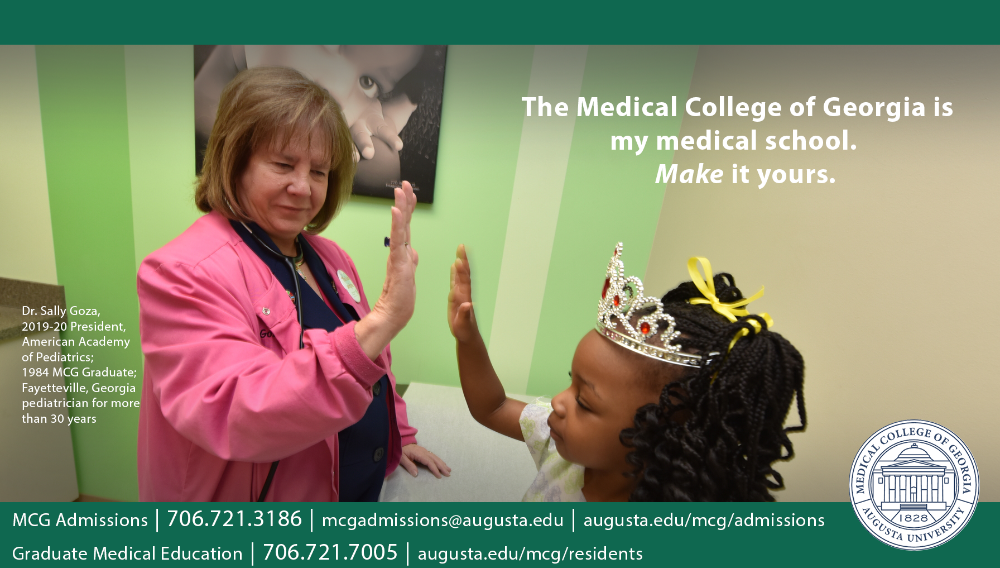
Welcome to Pediatric Student Education
Our goal is to expose you to a broad spectrum of pediatrics in six weeks. Although most of you will not be pediatricians, you may have contact with children (or former children) in your field of interest.
The clerkship is structured upon the principle that learning is an active process which can be accomplished only by the student. The role of the faculty is to provide guidance, stimulation, and example. We invite you to learn as much as you can and HAVE FUN in the process!
We believe what you learn on your pediatric clerkship will help you elsewhere.
Contact Us
Pediatric Clerkships
Health Sciences Campus
BG 2101 B
1120 15th St.,
Augusta, GA 30912
706-721-3781
706-721-0054
The Philosophy of the Pediatrics Clerkship
No field of specialized medicine has a broader scope or greater responsibilities than has pediatrics, which is distinguished by its major concern for the growth and development of its subjects. Every physician must understand how the medical, surgical and behavioral problems of infants and children differ from those of adults, and how to manage them so as to permit the child to achieve an optimal state of mental and physical health. Therefore, the fundamental purpose of the pediatric clerkship is to provide a structured environment in which each medical student acquires a basic knowledge of pediatric medicine as well as human growth and development which will serve as a foundation for providing quality child health care in whatever field of medicine he or she may enter.

Clerkship Goals
The goals of the clerkship align with Augusta University’s Medical College of Georgia goals which align with the six ACGME core competencies. Below are the goals for each medical student during the course of the clerkship:
Professionalism
- Demonstrate attitudes and professional behaviors appropriate for clinical practice.
Patient Care
- Develop competency in the physical examination of infants, children and adolescents,
- Develop strategies for health promotion, disease and injury prevention, and
- Understand the influence of family, community, and society on the child in health and disease
Medical Knowledge
- Acquire a basic knowledge of growth and development (physical, physiologic and psychosocial) and of its clinical application from birth through adolescence, and the knowledge necessary for the diagnosis and initial management of common pediatric acute and chronic illnesses.
Practice-Based Learning
- Develop clinical problem-solving skills.
Communication
- Develop communication skills that will facilitate the clinical interaction with children, adolescents and their families and thus ensure that complete, accurate data are obtained.
Systems-Based Practice
- Develop an understanding of the approach of pediatricians to the health care of children and adolescents.